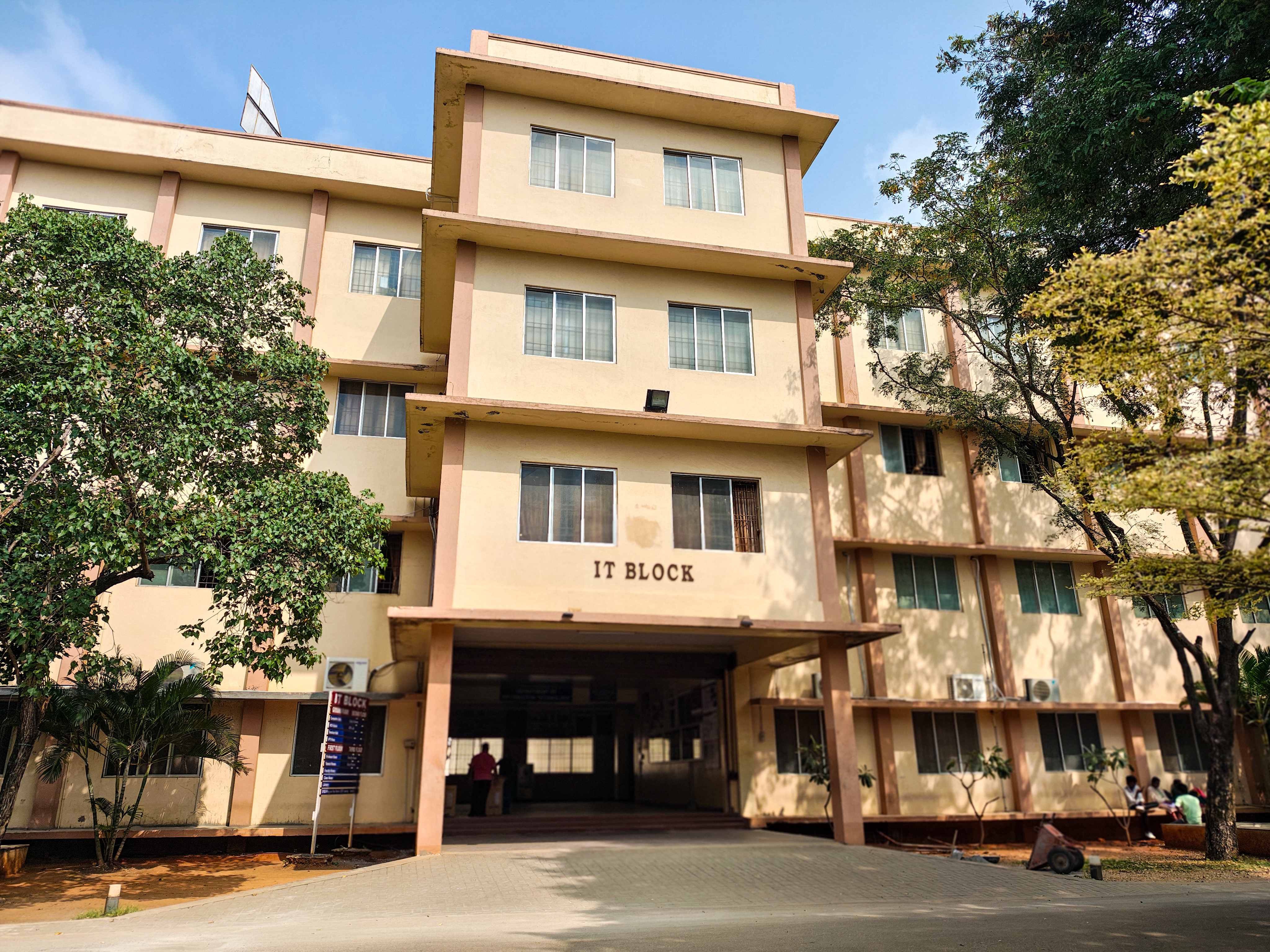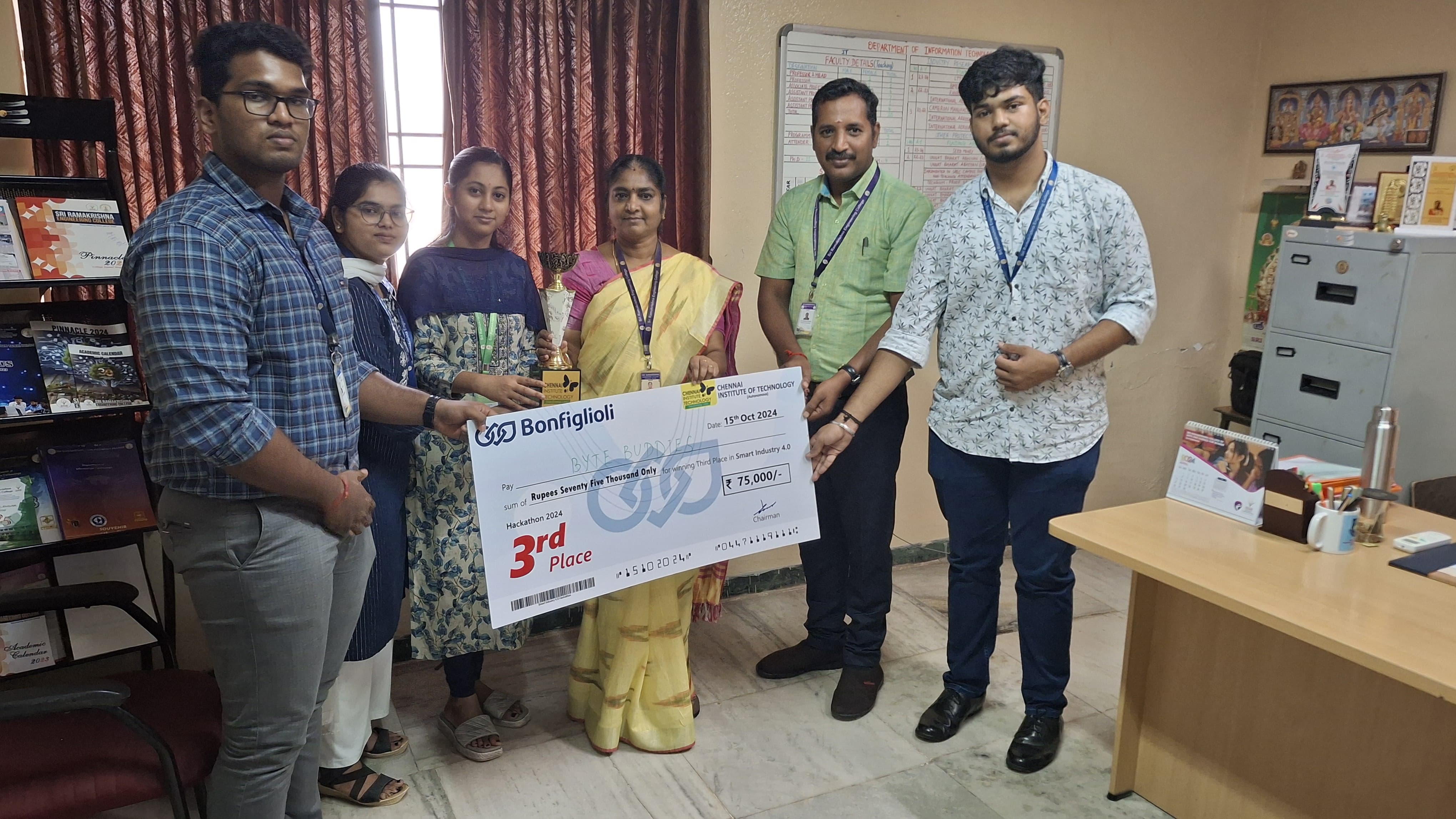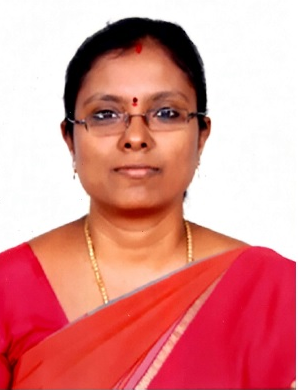

The Department of Information Technology was established in 1998. It is accredited by National Board of Accreditation (NBA) since 2007 and Permanently Affiliated to Anna University, Chennai. The department has been recognized as Research Center by Anna University, Chennai. The department has state-of-art infrastructure facilities with experienced faculty members. The department has received various funds from AICTE, Anna University, NABARD, CSIR & IEEE-WIE. The faculty members and students are actively involved in internship and sabbaticals at Center for Brain Computing Research, Bennett University, Noida. The Apple iOS Mobile Application Development Laboratory was established with high end iMac machines worth of INR 40 lakhs. The Deep Learning Laboratory has been established with the support of NVIDIA Jetson Nano 2GB grant program and it consists of 15 Jetson Nano AI kits. Centre of Excellence on Cyber Security established in the year 2023 with net worth of 31 lakhs works for significant milestone, facilitated by strategic partnerships, innovative research initiatives, and comprehensive training programs, including certifications by the Continuing Education Centre and EC-Council.


The Department of Information Technology was established in 1998. It is accredited by National Board of Accreditation (NBA) since 2007 and Permanently Affiliated to Anna University, Chennai. The department has been recognized as Research Center by Anna University, Chennai. The department has state-of-art infrastructure facilities with experienced faculty members. The department has received various funds from AICTE, Anna University, NABARD, CSIR & IEEE-WIE. The faculty members and students are actively involved in internship and sabbaticals…Readmore
N. Susila is currently working as Professor and Head in the Department of Information Technology at Sri Ramakrishna Engineering College. She has a total experience of 24 years. She began her career as a Lecturer at Sri Sairam Engineering College, Chennai, where she served for 5.5 years. During her 18-year tenure at Sri Krishna College of Engineering and Technology, she held various positions including Dean – Emerging Technology, Controller of…Readmore

B.E (CSE), M.E (CSE), Ph.D
Let SREC be a stepping stone of your success.
VISION
1. To evolve the programme to global standards in Information Technology domain attuning to the needs and challenges of industry and society.
MISSION
1. To inculcate professional adeptness and motivation for life-long learning through a comprehensive curriculum, innovative teaching and industry interaction.
2. To promote entrepreneurship, research and consultancy.
3. To produce technologists with social responsibilities and ethical values.
The Department of Information Technology Programme graduates will be able to:
PEO I: Be proficient in their professional career, higher education, entrepreneurial endeavours through a sound foundation in mathematical, computing skills and communication technologies in the field of Information Technology.
PEO II: Possess the proficiency to analyze, design and develop products using current tools and techniques for solving complex problems.
PEO III: Exhibit effective communication skills, teamwork, professional ethics and multidisciplinary approach in their profession with a capability to relate engineering issues to meet the current trends to a broader societal and environmental context.
1. Engineering knowledge: Apply the knowledge of mathematics, science, engineering fundamentals, and an engineering specialization to the solution of complex engineering problems.
2. Problem analysis: Identify, formulate, review research literature, and analyze complex engineering problems reaching substantiated conclusions using first principles of mathematics, natural sciences, and engineering sciences.
3. Design/development of solutions: Design solutions for complex engineering problems and design system components or processes that meet the specified needs with appropriate consideration for the public health and safety, and the cultural, societal, and environmental considerations.
4. Conduct investigations of complex problems: Use research-based knowledge and research methods including design of experiments, analysis and interpretation of data, and synthesis of the information to provide valid conclusions.
5. Modern tool usage: Create, select, and apply appropriate techniques, resources, and modern engineering and IT tools including prediction and modeling to complex engineering activities with an understanding of the limitations.
6. The engineer and society: Apply reasoning informed by the contextual knowledge to assess societal, health, safety, legal and cultural issues and the consequent responsibilities relevant to the professional engineering practice.
7. Environment and sustainability: Understand the impact of the professional engineering solutions in societal and environmental contexts, and demonstrate the knowledge of, and need for sustainable development.
8. Ethics: Apply ethical principles and commit to professional ethics and responsibilities and norms of the engineering practice.
9. Individual and team work: Function effectively as an individual, and as a member or leader in diverse teams, and in multidisciplinary settings.
10. Communication: Communicate effectively on complex engineering activities with the engineering community and with society at large, such as, being able to comprehend and write effective reports and design documentation, make effective presentations, and give and receive clear instructions.
11. Project management and finance: Demonstrate knowledge and understanding of the engineering and management principles and apply these to one’s own work, as a member and leader in a team, to manage projects and in multidisciplinary environments.
12. Life-long learning: Recognize the need for, and have the preparation and ability to engage in independent and life-long learning in the broadest context of technological change.
PSO1: Use fundamental knowledge in Mathematics, basic Engineering and in-depth knowledge in Information Technology to optimize software development with due consideration for ethical, societal and environmental sustainability.
PSO2: Design and develop solutions as the member of project team for Information Communication Technology using modern tools, techniques and methodologies.
PSO3: Apply skill sets to develop and enhance professional career in the fields related to human-computer interaction for the design and implementation of intelligent systems.